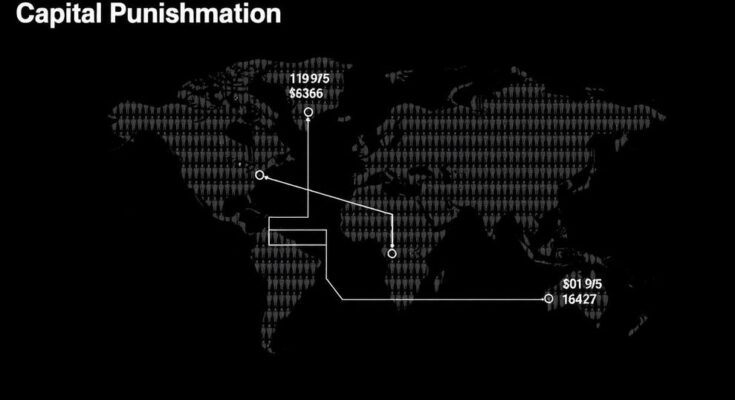In 2022, executions worldwide surged by 53%, with notable increases in Iran (up 83%) and Saudi Arabia (up 200%). Iran accounted for 70% of executions in the Middle East and North Africa. Indonesia issued a high number of new death sentences, largely for drug-related offenses. The report highlights concerns over the transparency of death penalty practices in several countries and observes a growing movement toward abolition of capital punishment.
According to Amnesty International’s annual report, global executions saw a staggering increase of 53% in 2022 compared to the previous year. The report highlights substantial rises in execution numbers in Iran and Saudi Arabia, classifying these nations as key contributors to the uptick. In particular, Iran witnessed an 83% surge in executions, climbing from 314 in 2021 to an alarming 576 in 2022. Furthermore, Saudi Arabia’s figure tripled, escalating from 65 executions in 2021 to 196 in 2022. The report indicates that Iran alone was responsible for approximately 70% of the executions in the Middle East and North Africa. Other countries such as Kuwait, Myanmar, the Palestinian territories, Singapore, and the United States also reported significant increases in execution rates when compared to the previous year. In total, executions were carried out across 20 countries, resulting in 883 confirmed executions in 2022 versus 579 in 18 countries in 2021. Amnesty International expressed concern over the persistent secrecy surrounding the death penalty in numerous nations, notably China, North Korea, and Vietnam, which obscures accurate evaluation of their practices regarding capital punishment. In Indonesia, the report noted that 94% of the 112 new death sentences issued in 2022 stemmed from drug-related offenses, which under international law do not constitute the most serious crimes, thereby raising questions about the legitimacy of such sentences. The report also highlighted alarming figures from the Asia-Pacific region, with Bangladesh recording at least 169 new death sentences, followed closely by India with 165 and Pakistan with 127. Indonesia officially practices the death penalty for serious offenses including murder, terrorism, and drug trafficking, with the last known executions conducted in July 2016, during which four individuals—including three Nigerians—were executed for drug offenses. Currently, over 450 individuals are on death row in Indonesia, with about 60% of them being convicted drug traffickers, including 88 foreign nationals from eighteen different countries. The report revealed that a total of at least 325 executions were confirmed in countries such as China, Iran, Saudi Arabia, and Singapore for drug-related offenses, which more than doubled since 2021. Interestingly, Amnesty International noted that the number of countries abolishing the death penalty rose to 112 last year, including Papua New Guinea, Indonesia’s neighbor. Malaysia has also initiated steps to reform its mandatory death sentencing system.
The topic of executions and the death penalty remains a contentious issue worldwide, and Amnesty International plays a crucial role in reporting and advocating against such practices. The increase in executions in 2022 raises questions about human rights protections in various countries, particularly in regions where political and legal systems may undervalue life and prioritize punitive measures. This context is vital in understanding the statistics and trends presented in Amnesty International’s reports, as they highlight the geopolitical and sociocultural complexities surrounding the application of the death penalty.
In summary, the rise in executions reported by Amnesty International underscores a troubling trend in global human rights practices, particularly in Iran and Saudi Arabia, where the use of capital punishment has intensified significantly. With various nations employing the death penalty for crimes that might not align with international definitions of the most serious offenses, the report calls for a reevaluation of death penalty statutes and practices worldwide. The contrasting movement toward abolition in some countries offers hope for future reforms and the recognition of the inherent dignity of all individuals.
Original Source: www.pbs.org




